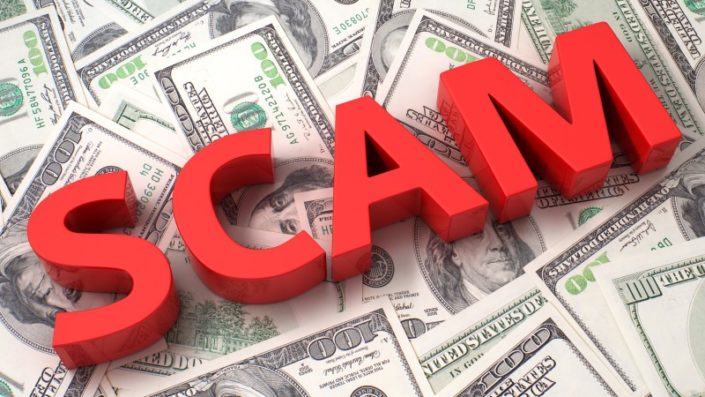Is That Check Bad?

It’s easy to believe that you are working for a valid secret shopping company when they send you your first official-looking check in the mail. But could that check be the scam itself?
Fraudsters have become very clever at creating fake checks that look completely legitimate, fooling consumers and even bank employees. These fake checks are used to commit all sorts of scams.
These scams come in many different forms such as phony prize awards, fake job offers, mystery shopper cons, and bogus online classified sales. Before you deposit a check from something you sold online or wire funds to an unknown recipient, here is what you should know.
Although there are many variations of this scam, the basic way it works is you receive a check for a large amount of money and are asked to refund or pass on a portion of the amount to the sender or a third party. By the time you find out the check is fake, your money is long gone.
Common check scams to look out for:
Mystery Shopper: While looking for an extra way to make money you answer an advertisement to be a mystery shopper. The company sends you a check to supposedly cover the items you will be buying and to “test” Western Union’s services. You will also be able to deduct your pay from the check.
How to tell it’s a scam?
- The check is for more than $1,000 and the company says you can keep a $250 to $300 fee for the job. Real mystery shopper jobs pay $10 to $25 per job.
- They pay you in advance. Legitimate mystery shopping jobs only pay you after you have submitted your review to them.
- If the company asks you to “test” out Western Union it’s a good sign that it’s a scam. Once you wire out any funds, the money is instantly gone and in the criminals hands.
Sweepstakes: You’ve just won a lottery! You’ve received a check for $10,000 which is just a portion of your winnings. To claim the rest of your winnings all you have to do is send out a personal check for the taxes due on your winnings.
How to tell it’s a scam?
- You didn’t enter the lottery. (Trust me you would know if you had.)
- Taxes are collected after you receive your income, not before.
- Governments collect taxes, not lotteries.
Overpayment: You’re selling some purebred bulldog puppies, a car, TV, or various other items online. You get contacted by someone who is very interested in buying a bulldog puppy (or whatever you’re selling) and is desperate to pay you as soon as possible.
There’s just one problem, the buyer is from overseas, hasn’t opened a bank account in the USA and can only pay you with a third-party check. You can simply take the check, deduct out the amount for the puppy, and wire the rest back to them, right?
How to tell it’s a scam?
- The buyer not having a bank account in the USA is a noticeable sign that they are trying to scam you. If you cash a third party check, you’re responsible for the funds if the check is returned.
- If your buyer is showing a sense of urgency they’re usually just trying to rush you into the scam before you can think it through clearly. Let them know you will hold the puppy until they open an account or give them first pick on another litter. Don’t let a buyer rush you into anything you’re unsure about.
How can you avoid these fake check scams?
- Don’t take any offer seriously that requires you to pay for a prize. If it’s free or a gift you shouldn’t have to pay anything for it.
- Don’t respond to online solicitations for “easy money.” Keep in mind that easy money is rarely legal money.
- Stay away from entering foreign lotteries. Other than the fact that it’s illegal to play a foreign lottery, most foreign lottery solicitations are a hoax.
- Know who you’re doing business with and never wire out or accept wires from strangers.
- When selling something, don’t accept a check for more than the selling price, no matter how convincing the story they give you. Ask the buyer to write a check for the correct amount. If they refuse, return the check to them. Don’t send out the merchandise.
- If a buyer insists that you wire back funds, end the transaction. Legitimate buyers don’t pressure you to send money by wire transfer services.
- If a check you received seems suspicious, get advice. Reach out to your state or local consumer protection agency, the Federal Trade Commission, the Postal Service, your local bank (we’re happy to help), or another trusted source.
- Even if a check has “cleared”, you may not be in the clear. Banks must make deposited funds available quickly, but just because you can withdraw the money doesn’t mean the check is good. It can take weeks to find out if a check is good or not.
Keep in mind that there is no legitimate reason for someone who is giving you money to ask you to wire money back. Be sure to report any suspected fraud to your bank immediately. To prevent these scams from affecting more people in the future, report it to the Federal Trade Commission or The Better Business Bureau’s Scam Tracker.


